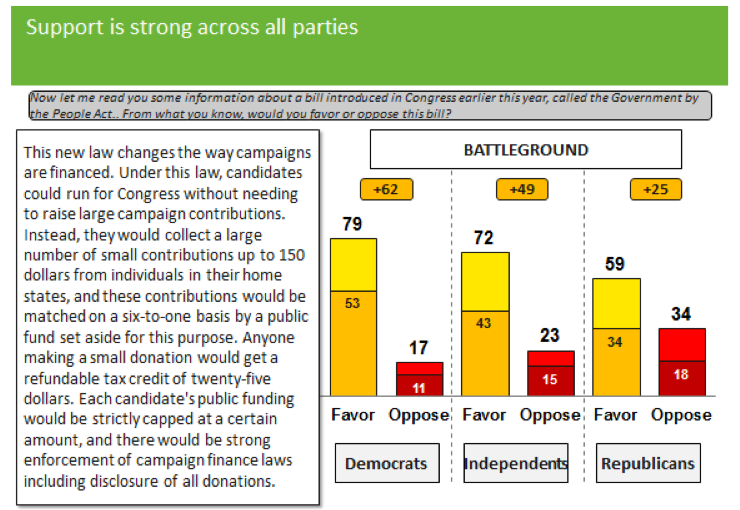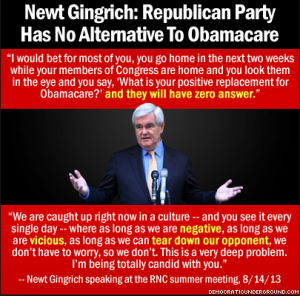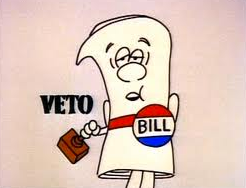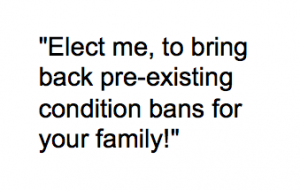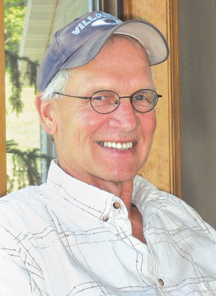 Duane Benson is leading an interesting life. As a football player, he made the unlikely leap from the MIAC’s Hamline Pipers to the NFL’s Oakland Raiders, Atlanta Falcons and Houston Oilers. As a member of what was then called the Independent Republican (IR) Party, he served as Minnesota Senate Minority Leader.
Duane Benson is leading an interesting life. As a football player, he made the unlikely leap from the MIAC’s Hamline Pipers to the NFL’s Oakland Raiders, Atlanta Falcons and Houston Oilers. As a member of what was then called the Independent Republican (IR) Party, he served as Minnesota Senate Minority Leader.
Since retiring from politics, he has served as the Executive Director of the Minnesota Business Partnership, Executive Director of the Minnesota Early Learning Foundation (MELF), Commissioner on the Minnesota Sports Facilities Authority (MSFA) and Trustee of the Minnesota State Colleges and Universities (MnSCU), among other duties. All the while, he has operated a ranch near Lanesboro, Minnesota.
But this has been a particularly poignant time of life for Benson. In the middle of overseeing a massive higher education system and a billion dollar stadium project, Benson’s brother died in a tragic house fire, his beloved dog died, and he was diagnosed with tonsil cancer. He has a lot on his mind.
Benson is a fount of wisdom and humor, so I recently sat down with him over a Grain Belt at O’Gara’s in St. Paul to pick his wry, interesting and mischievous brain.
Q. You recently had surgery for tonsil cancer. How are you feeling these days? A. I’m feeling good. I’m still having a little trouble with excess saliva that effects my speech, but I’m managing that better. I was real lucky early on, and I think my speech is getting better. I still have a little weight to gain back, but I have no complaints.
Q. How did you discover it? A. A dentist said “you have a lump in your jaw.” I went to the family doctor, they took it off. The guy said it’s benign, salivary gland, but I’ll send your stuff over to Mayo. He sent it over there, and they wanted to run a PET scan. They found cancer on my right tonsil. So, they removed the tonsil and the lymph nodes on the right side. You know when you have something like this, you learn of all kinds of people who have had something like this go wrong. They kind of come out of the woodwork. And I can’t think of anyone who has come out of it better than I have. No chemo so far, no radiation, and very little restrictions of anything I do. Yeah, I’ve come out of it well.
Q. The Legislature recently adjourned, and I know you still follow things at the Capitol. How has the tone of legislative discussions changed since you left office? A. Well I think, it’s a little bit like religions for me, organized religions. We have 320 Christian denominations in this country, and that doesn’t count Judaism and Muslims and everyone else. We spend all of our time on how we’re different. Political parties have become that way. We’re spending all our time on how we’re different. To get back to the analogy of religion, a lot of people believe in God, but they spend all their time talking about how they’re different instead of the same. I think the party organization has had a lot to do with manipulating people in politics. I’m encouraged that in recent times Mike Hatch broke the mold and said to his party “I don’t want your endorsement.” Mark Dayton came along and said “I don’t want your endorsement.” In fact, the guy running for Senate (Mike McFadden) said he wouldn’t abide by the party endorsement, which would have been the death knell in the past. And they endorsed him anyway! So I’m encouraged that the whole religion stuff might be dying down. Maybe it’s going back to more about the greater good than “I don’t like you.”
Q. What factors have caused the change in tone? A. I think it’s the focus on how we’re different. I don’t want to harken back to some good old day or something. You should have differences, on four or five really big issues – taxes, could be education delivery, a few others. But now it’s everything. And so I think that partisanship got intensified. But as I said I’m kinda encouraged that I think there’s a little bit of hope that you don’t have to go through the purification process in order to get (on the ballot), which means maybe the greater good will come to the front. When Roger Moe and I were in office, the political parties would come to us as caucus leaders and say “we need money.” We’d write ‘em a check, and say don’t ever darken my door again. Now, political parties come and say “we’ve got the money, and you better be beholden.” That’s very different.
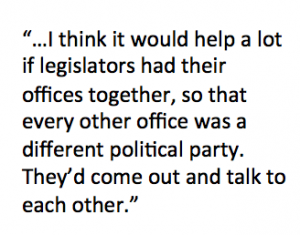 Q. What do you think could be done to improve inter-party legislative relationships? A. It sounds simplistic, but I think it would help a lot if legislators had their offices together, so that every other office was a different political party. They’d come out and talk to each other. Right now for instance with the Senate and that new building, it’s a block from the other side. In the House it’s a floor separating them. And the whole place is run on communications, but I guarantee I can go over there and find people who haven’t met all their colleagues yet. I think office-ing near each other is a kind of a simple fundamental thing that could happen to help people get to know each other. Then I think you start to respect each other, and do all these other things.
Q. What do you think could be done to improve inter-party legislative relationships? A. It sounds simplistic, but I think it would help a lot if legislators had their offices together, so that every other office was a different political party. They’d come out and talk to each other. Right now for instance with the Senate and that new building, it’s a block from the other side. In the House it’s a floor separating them. And the whole place is run on communications, but I guarantee I can go over there and find people who haven’t met all their colleagues yet. I think office-ing near each other is a kind of a simple fundamental thing that could happen to help people get to know each other. Then I think you start to respect each other, and do all these other things.
Q. What else has changed? A. A lot of these ethics laws that needed to be passed did change things. Before, you had to go to these damn (interest group-sponsored) receptions. And you’d go out in front of the Capitol and you’d get in a car, and you didn’t know who in the hell was in it. You know, it would be Democrats and Republicans. You got to know each other. They don’t do that now. None. They’re physically apart. Things got a little overboard ethically in those days, but to some extent there is a chilling effect of going so far in the other direction.
Q. Well, they could grab a beer with each other on their own dime. Do you think that would help? A. Well, sure it would. You know they used to say that Gallivan’s, down on Wabasha in downtown St. Paul, they say most of the laws were written there. (laughing)
Q. How was it working with former Senate Majority Leader Roger Moe? A. I did an interview about Roger Moe and the interviewer said “Roger told me you were the only friend he ever had in the Legislature.” And I said “He was the only friend I had.” They got along pretty good, the bodies, and they didn’t need us. So we had to interject ourselves from time to time. And then Roger was the master of co-opting me and everyone else. He was pretty damn good at it. I’d get our group of people in our caucus all fired up, ‘let’s go get ‘em, it’s an election year.’ They’d look at me and say “Roger appointed me the Chair of some council on seniors, or some damn thing.” (Laughing) Okay, check him off. Before you know it, I’ve got about two supporters left.
Q. You and Senator Moe must have gotten angry at each other during the heat of battle. When that happened, how did you smooth it over so you could move forward? A. I think both of us, if we were wrong, we apologized to each other right away. Or he would be mad, and I’d say “we gotta get this behind us.” So we didn’t let it fester. You know it didn’t hang around and hang around.
Q. Is that because the kind of people each of you are, or is it because that’s what you had to do that to get your jobs done? A. Umm, I don’t know. You know, Roger is a Norwegian. (laughs) The old adage about the Norwegian who loved his wife so much he almost told her, which is kinda true. You know, they don’t say shit. So, we would go to see (DFL) Governor Perpich together. First time. You know, I was so excited, I wanted to know about the squirrels and the windows. Roger doesn’t say a word the whole time. Second time I’m in there. We sat for a half hour. None of us said a word. Walkin’ out and I says to Roger, “That was sure fun.” He says “We actually made a lot of progress.” (laughing) To him, that’s progress. That’s Roger. Wait. Wait. Wait. Wait. Wait.
Q. So, he thought the progress was just that you were establishing a relationship with the Governor? A. Yep. Yep. And the other thing Roger did, and I still use it today, is that he would never sweep the table. Don’t take the crumbs. Given them something. And that year when we had like 41% of the Senators, I set out as our goal to get 41% of everything that went through there. And in the crime bill, we probably got 85%, taxes probably got 40%, health care we got 60%. Roger didn’t sweep the table. (laughing) That’s not the game now.
Q. So why do you suppose he didn’t ‘sweep the table?’ A. He wanted to stay in the majority. He didn’t want to piss anyone off. Boy he was masterful. I couldn’t wake the sleeping giant with a shotgun. He put (the Republican caucus) to sleep.
Q. When you served in the Legislature, which of your colleagues made you laugh the most? A. Oh my God. Clarence Purfeerst. We all have misnomers. You know, I’d keep track of them on paper. And they were subtle. I think I had five pages of them written down. Clarence Purfeerst. He was the Senator from Fairbault. Very effective. He carried the para-mutual betting bill. Living will. Never read ‘em. Never read the bill. Had no idea what was in them. But he’d say “if we could dispense the debate and get to the crotch of the matter.” (Laughs) And he had a hundred of those, and he never knew he said them. And we all said ‘em. Gene Merriam, one of the brightest guys who I ever served with, read every bill, carried the Superfund legislation. Room 15 was just packed. So somebody said, “Senator Merriam, what is pollution.” He says, “well it starts with an orgasm.” (laughs) The place was up for grabs. He turned red. Christ, they couldn’t get control of the place for another 5, 10 minutes. Someone says “you want to try that again?” “Yeah, really what happens with pollution is that it starts with an orgasm.” They adjourned the meeting. (laughs) People would come over to me and ask in a down moment “can I see your list (of misnomers).” Clarence had most of ‘em. But the rest of us, we did alright too.
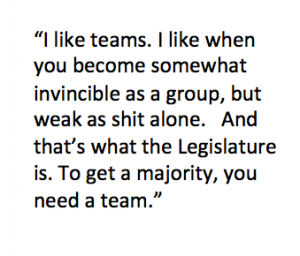 Q. Did it help to get things done, to be able to laugh together? A. Oh I think so. With all that’s happened to me recently with my brother dying, my dog dying, my cancer, and everything else, it kind of gave me a chance to think about what is that I like to do. And I like teams. For whatever reason, I’ve been the captain of everything I’ve played on in sports — in high school, college, the Raiders. It’s because I like teams. I like when you become somewhat invincible as a group, but weak as shit alone. And so, it’s pretty hard not to have an ally if you laugh together. It’s pretty hard to stay mad about something. And that’s what the Legislature is. To get a majority, you need a team.
Q. Did it help to get things done, to be able to laugh together? A. Oh I think so. With all that’s happened to me recently with my brother dying, my dog dying, my cancer, and everything else, it kind of gave me a chance to think about what is that I like to do. And I like teams. For whatever reason, I’ve been the captain of everything I’ve played on in sports — in high school, college, the Raiders. It’s because I like teams. I like when you become somewhat invincible as a group, but weak as shit alone. And so, it’s pretty hard not to have an ally if you laugh together. It’s pretty hard to stay mad about something. And that’s what the Legislature is. To get a majority, you need a team.
Q. So, it’s interesting that you think of both your caucus and the entire Legislature as your team, not just your caucus. Is that right? A. Yeah.
Q. That’s different now? Uh yeah, they had their caucus and we had our caucus. But make no mistake about it, they had more votes than we did. And so to get some of the things that we think are important, with 41% or whatever, (DFL legislators) had to be part of the team. You didn’t have enough votes to cram it down their throats.
Q. What do you think DFLers misunderstand about Republican philosophy? A. I don’t think the electorate is too warmed up to “who did this and who did that.” It’s“how can you fix it?” “Can you make it work?” I would say that what Democrats fail to understand about Republicans is that Republicans want government to work better. Now some of them want less of it, to the point of none of it, but overall they want to fix it.
 Q. What’s the most important thing your time in football taught you about life? A. (long pause) I think to have fun. Gene Upshaw, Hall of Famer, used to stand up on the table and say “All you f***ers who just want to go out there and think this is fun, you’re not going to get a check. Head out there. Not you Benson, the rest of ‘em.” The game was fun. Politics is fun. I think people who have fun are productive.
Q. What’s the most important thing your time in football taught you about life? A. (long pause) I think to have fun. Gene Upshaw, Hall of Famer, used to stand up on the table and say “All you f***ers who just want to go out there and think this is fun, you’re not going to get a check. Head out there. Not you Benson, the rest of ‘em.” The game was fun. Politics is fun. I think people who have fun are productive.
Q. These days you divide your time between meetings with very powerful people and meetings with cattle and horses out on your ranch. Where do you get more answers? A. More out there (on the ranch). Being alone. I’ve been running for about 55 years. I average about 20 miles per week. Or I’m on a horse. I find myself thinking about goddamnest stuff that I just love. And I don’t have anyone to tell it to. But I don’t give a shit.
Q. Superbowl Sunday 2018. Would you rather be in a luxury suite in the new stadium you are working so hard to oversee as a member of the Stadium Authority, or spending time on the ranch? A. I won’t be at the Super Bowl. Remember the great Duane Thomas from the Dallas Cowboys? He was goofier than hell. He never talked to a reporter all year. Never. So, then they get to the Super Bowl, and none of the reporters are going to talk to him. So, some cub reporter from Davenport or something sticks a mike in front of him. “Oh Mr. Thomas, isn’t this the greatest game ever. Aren’t you so excited. Can you believe this? Isn’t this the greatest game ever?” And he finally talked, first time all year. “No, they’re going to play another one next year.” And that’s kind of how I feel about the Super Bowl. I don’t enjoy watching that much, and that one is going to be so full of hoopla. The game has changed a lot, and I don’t like all of that commotion. Madden called it hoopla.
Q. How has battling cancer changed your outlook on life? A. With my brother’s passing and things that were happening at the same time, you come closer to the realization that nobody gets out of this deal alive. I was thinking “so what is it that you really enjoy.” I’m kind of an isolated, not lonely, but I’m kind of to myself. But I just love the hell out of this team concept stuff. That doesn’t make sense. Kind of an isolationist that liked the team culture, establishing the culture, being part of that. You look at teams and why are some better. It’s the culture. I’m still wrestling with the cancer thing. You know, I’m fully aware that I could go back to the doctor in August and they’d take off a leg or whatever. But either way at some point, the Grim Reaper comes to see you. When I was in a couple training camps, they keep 40 guys and cut 100 guys. Really brutal. (laughing) So in the mornings, you’d hear the kid walking down the hall of the dorm we’re all staying in. “Knock, knock, knock. Breakfast.” “Knock, knock, knock. Breakfast.” “Knock, knock, knock. Breakfast, bring your playbook.” And then you’d hear all the rest of the players holler: “Grim Reaper!” (laughing) Well, that’s one I haven’t finished resolving.
– Loveland
Note: This post was also featured as a “best of the best” in MinnPost’s Blog Cabin.
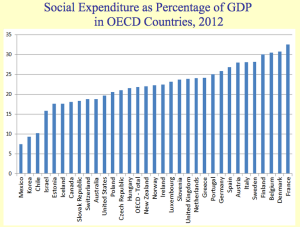 High as a kite from these clippings and the vindication they represent, DFLers run the risk of over-stepping, of pushing Minnesotans further than it they are comfortable going. As much as DFL politicians fantasize about bringing the social welfare model of a Scandinavian nation to a state populated with so many Scandinavian immigrants, a recent survey in the Star Tribune provides a harsh reminder that Minnesota, politically speaking, is not MinneSweden.
High as a kite from these clippings and the vindication they represent, DFLers run the risk of over-stepping, of pushing Minnesotans further than it they are comfortable going. As much as DFL politicians fantasize about bringing the social welfare model of a Scandinavian nation to a state populated with so many Scandinavian immigrants, a recent survey in the Star Tribune provides a harsh reminder that Minnesota, politically speaking, is not MinneSweden.
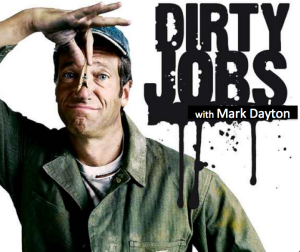 Governor Mark Dayton is Minnesota’s political version of Mike Rowe, the star of the Discovery Channel television show “Dirty Jobs.” Rowe’s show is all about him taking on difficult, disrespected and grotesque jobs that others avoid, such as being a sewer inspector, road kill scavenger, worm dung farmer, shark repellent tester, maggot farmer, and sea lamprey exterminator. Who knew that worm dung needed farming?
Governor Mark Dayton is Minnesota’s political version of Mike Rowe, the star of the Discovery Channel television show “Dirty Jobs.” Rowe’s show is all about him taking on difficult, disrespected and grotesque jobs that others avoid, such as being a sewer inspector, road kill scavenger, worm dung farmer, shark repellent tester, maggot farmer, and sea lamprey exterminator. Who knew that worm dung needed farming? One of the things that you can usually expect Republicans to be consistent about is faith in market forces. They’re continually reminding us that we should trust market forces to allocate resources, as opposed to having politicians arbitrarily setting prices and picking winners and losers.
One of the things that you can usually expect Republicans to be consistent about is faith in market forces. They’re continually reminding us that we should trust market forces to allocate resources, as opposed to having politicians arbitrarily setting prices and picking winners and losers. Anybody who has followed my lunatic rantings knows that I’m an unabashed wealth redistributin’, Wall Street regulatin’, minority rightsin’, carbon tradin’, Keynesian spendin’, Medicare-for-Allin’, tree-huggin’, consumer protectin’, Pentagon cuttin’, infrastructure rebuildin’, union supportin’, monopoly bustin’, education investin’ liberal.
Anybody who has followed my lunatic rantings knows that I’m an unabashed wealth redistributin’, Wall Street regulatin’, minority rightsin’, carbon tradin’, Keynesian spendin’, Medicare-for-Allin’, tree-huggin’, consumer protectin’, Pentagon cuttin’, infrastructure rebuildin’, union supportin’, monopoly bustin’, education investin’ liberal.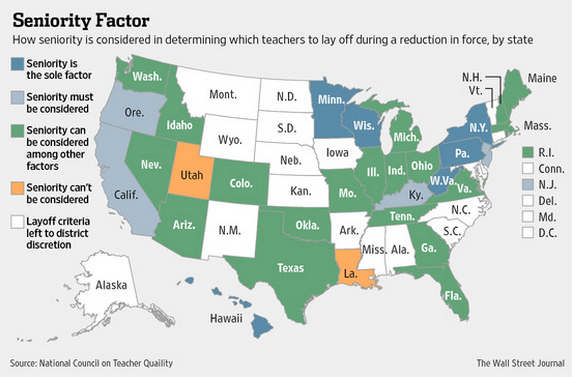 A talented young teacher who is successfully improving kids’ learning automatically should be mandated to be the first to be fired? That’s putting kids first? That’s pro-teacher? That’s pro-education? That’s respecting the teaching profession? That’s helping struggling low-income school districts, who have a disproportionate share of younger teachers? That’s liberal?
A talented young teacher who is successfully improving kids’ learning automatically should be mandated to be the first to be fired? That’s putting kids first? That’s pro-teacher? That’s pro-education? That’s respecting the teaching profession? That’s helping struggling low-income school districts, who have a disproportionate share of younger teachers? That’s liberal? It sounds simplistic, but I think it would help a lot if legislators had their offices together, so that every other office was a different political party. They’d come out and talk to each other. In the House it’s a floor separating them.
It sounds simplistic, but I think it would help a lot if legislators had their offices together, so that every other office was a different political party. They’d come out and talk to each other. In the House it’s a floor separating them. Would having Democrats and Republicans in every other office automatically lead to a grand new era of bipartisan peace, love and understanding? Nope. But it would almost certainly lead to more hallway conversations: “What are you doing this weekend?” “How’s your family?” “Can we borrow a chair for an hour?” “Cold enough for ya? “How about them Twins?”
Would having Democrats and Republicans in every other office automatically lead to a grand new era of bipartisan peace, love and understanding? Nope. But it would almost certainly lead to more hallway conversations: “What are you doing this weekend?” “How’s your family?” “Can we borrow a chair for an hour?” “Cold enough for ya? “How about them Twins?” Minnesota Republicans captured control of the Minnesota House of Representatives in part by fueling urban versus rural resentment: “Those metro-centric DFLers give everything to Minneapolis and St. Paul.” The truth is, turnout trends associated with non-presidential year elections were a
Minnesota Republicans captured control of the Minnesota House of Representatives in part by fueling urban versus rural resentment: “Those metro-centric DFLers give everything to Minneapolis and St. Paul.” The truth is, turnout trends associated with non-presidential year elections were a 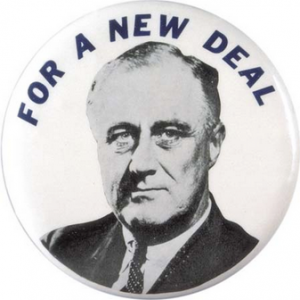 But progressives are also supposed to lead the way forward. The dictionary says a “progressive” is “a person advocating or implementing social reform or new, liberal ideas.”
But progressives are also supposed to lead the way forward. The dictionary says a “progressive” is “a person advocating or implementing social reform or new, liberal ideas.” But there is at least one policymaking unforced error that is making things a bit more difficult for the DFL — the DFLers authorization of a new Senate office building.
But there is at least one policymaking unforced error that is making things a bit more difficult for the DFL — the DFLers authorization of a new Senate office building.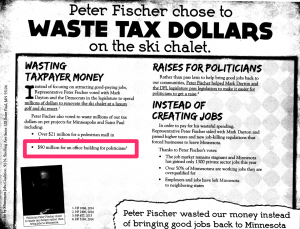 Most voters won’t do a comprehensive financial analysis of whether DFL leaders are doing a good job stewarding their tax dollars. They will judge fiscal stewardship based on an isolated example or two. Republicans are working overtime to make sure that the Senate Office Building is the example voters use to make their judgement.
Most voters won’t do a comprehensive financial analysis of whether DFL leaders are doing a good job stewarding their tax dollars. They will judge fiscal stewardship based on an isolated example or two. Republicans are working overtime to make sure that the Senate Office Building is the example voters use to make their judgement.






